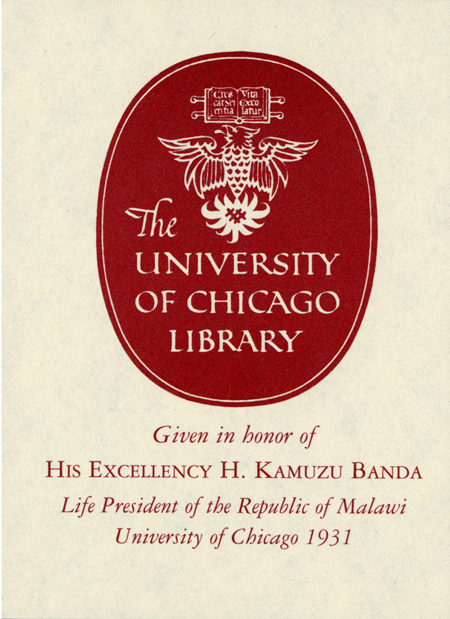|
|
|
|
| LEADER |
00000cam a2200000Ia 4500 |
| 001 |
8266044 |
| 005 |
20130405124200.0 |
| 008 |
091130s2009 sa b 001 0 eng d |
| 003 |
ICU |
| 016 |
7 |
|
|a 015867367
|2 Uk
|
| 020 |
|
|
|a 9781868884513 (pbk.)
|
| 020 |
|
|
|a 1868884511 (pbk.)
|
| 035 |
|
|
|a (OCoLC)471409930
|
| 035 |
|
|
|a 8266044
|
| 035 |
|
|
|a om3201534
|
| 040 |
|
|
|a OI@
|c OI@
|d OI@
|d EMU
|d YDXCP
|d OUN
|d UKMGB
|
| 043 |
|
|
|a f-sa---
|
| 049 |
|
|
|a CGUA
|
| 082 |
0 |
4 |
|a 305.83936
|2 22
|
| 090 |
|
|
|a DT1768.A57
|b T36 2009
|
| 100 |
1 |
|
|a Tamarkin, M.
|q (Mordechai),
|d 1938-
|0 http://id.loc.gov/authorities/names/n95060192
|1 http://viaf.org/viaf/24732478
|
| 245 |
1 |
0 |
|a Volk and flock :
|b ecology, identity and politics among Cape Afrikaners in the late nineteenth century /
|c Mordechai Tamarkin.
|
| 250 |
|
|
|a 1st ed.
|
| 260 |
|
|
|a Pretoria :
|b University of South Africa Press,
|c c2009.
|
| 300 |
|
|
|a v, 230 p. ;
|c 24 cm.
|
| 336 |
|
|
|a text
|b txt
|2 rdacontent
|0 http://id.loc.gov/vocabulary/contentTypes/txt
|
| 337 |
|
|
|a unmediated
|b n
|2 rdamedia
|0 http://id.loc.gov/vocabulary/mediaTypes/n
|
| 338 |
|
|
|a volume
|b nc
|2 rdacarrier
|0 http://id.loc.gov/vocabulary/carriers/nc
|
| 504 |
|
|
|a Includes bibliographical references (p. 214-218) and index.
|
| 505 |
0 |
|
|a 1. Habitat and habitus: sheep farming and the Afrikaner-English divide -- 2. A house divided: Afrikaner ethnicity and sub-ethnicity -- 3. Popular politics and resistance to the Scab Act.
|
| 520 |
|
|
|a "This study centres on the opposition of the majority Afrikaner sheep farmers in the 1890s to legislation affecting their stock farming pursuit. Focusing on the sheep-farming community, the study delves deeper into the process of ethnic identity formation among Afrikaner farmers. These farmers left, unusually, an amazingly rich body of written evidence. This offered the author a unique opportunity to explore the elusive process of ethnic consciousness formation among ordinary Afrikaners. Ethnic identity among Cape Afrikaner sheep farmers was forged, as is invariably the case, along the fault lines between them and the English-speaking settlers and the colonial government led by Cecil Rhodes. The main conflict arose around differences in culture and attitudes towards sheep farming. The ethnic consciousness of Afrikaner sheep farmers opposing the Act evolved against Afrikaner others with whom they shared cultural affinity but whom they vehemently opposed on issues related to sheep farming. Along these complex fault lines, they developed their version of Afrikaner identity and consciousness with a particular ontology, a particular understanding of the relations between the ecology and the farmer, a particular outlook about a proper Afrikaner way of life and a particular conception of ethnic morality. This brand of Afrikaner ethnicity gave rise to radical politics that shook the conservative, elite-dominated Afrikaner political party, the Afrikaner Bond. All this was in response to the Scab Act enacted by the Cape Parliament in 1894 that purported to make the scab disease a thing of the past. This aspect makes it as much a study of social ecology as it is about identity and politics. This book is a sequel to a previous book by the author on Cecil Rhodes and the Cape Afrikaners that explores the evolution of Cape Afrikaner ethnic identity and consciousness at the end of the 19th century. That book focused on the Cape Afrikaner political elite that led the movement of ethnic discovery and assertion"--Publisher's website.
|
| 610 |
2 |
0 |
|a Afrikaner Bond.
|0 http://id.loc.gov/authorities/names/n50060729
|
| 650 |
|
0 |
|a Afrikaners
|z South Africa
|z Cape of Good Hope
|x History
|y 19th century.
|
| 650 |
|
0 |
|a Afrikaners
|x Ethnic identity.
|0 http://id.loc.gov/authorities/subjects/sh85001780
|
| 650 |
|
0 |
|a Sheep ranchers
|z South Africa
|z Cape of Good Hope
|x History
|y 19th century.
|
| 651 |
|
0 |
|a South Africa
|x Politics and government
|y 1836-1909.
|0 http://id.loc.gov/authorities/subjects/sh85125488
|
| 610 |
2 |
7 |
|a Afrikaner Bond.
|2 fast
|0 http://id.worldcat.org/fast/fst00515259
|0 http://id.worldcat.org/fast/515259
|
| 650 |
|
7 |
|a Afrikaners.
|2 fast
|0 http://id.worldcat.org/fast/fst00800022
|
| 650 |
|
7 |
|a Afrikaners
|x Ethnic identity.
|2 fast
|0 http://id.worldcat.org/fast/fst00800025
|
| 650 |
|
7 |
|a Politics and government
|2 fast
|0 http://id.worldcat.org/fast/fst01919741
|
| 650 |
|
7 |
|a Sheep ranchers.
|2 fast
|0 http://id.worldcat.org/fast/fst01115566
|
| 651 |
|
7 |
|a South Africa.
|2 fast
|0 http://id.worldcat.org/fast/fst01204616
|
| 651 |
|
7 |
|a South Africa
|z Cape of Good Hope.
|2 fast
|0 http://id.worldcat.org/fast/fst01213442
|
| 648 |
|
7 |
|a 1800-1909
|2 fast
|
| 655 |
|
7 |
|a History.
|2 fast
|0 http://id.worldcat.org/fast/fst01411628
|
| 903 |
|
|
|a HeVa
|
| 929 |
|
|
|a cat
|
| 999 |
f |
f |
|i 78f07808-b6c8-5ded-aecc-06f4013de3f1
|s 12cbda98-a421-5c2e-a6b5-606dc4206787
|
| 928 |
|
|
|t Library of Congress classification
|a DT1768.A57 T36 2009
|l JRL
|c JRL-Gen
|i 1307414
|
| 927 |
|
|
|t Library of Congress classification
|a DT1768.A57 T36 2009
|l JRL
|c JRL-Gen
|e BAND
|b 099769439
|i 8850674
|

